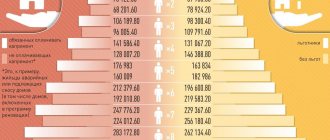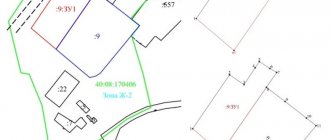Housing and communal services
9
Everywhere we use light and household appliances and cannot imagine life without electricity. In the modern world, this housing and communal service is perhaps one of the most in demand. The government has established standards for electricity consumption per person, and they are constantly increasing. Thus, the state encourages citizens to install metering devices, which ultimately save resource consumption.
But a fairly large percentage of apartments are not equipped with individual electricity meters. For such owners, consumption is calculated based on the standard per resident and the cost of the tariff per 1 kilowatt-hour.
The rate of electrical energy consumption is set by regional authorities.
Definition of concepts
Here are a number of terms that characterize this service and are associated with it:
Electricity is the volume of resource that enters the general network and reaches the consumer.
Social consumption standard is the amount of electricity consumption established by law per person. Applicable in the following cases:
- an individual meter is not installed;
- meter readings were submitted later than the deadline;
- the meter has failed or was deliberately damaged.
Kilowatt hour is the amount of energy consumed by household lighting and other appliances.
The basic tariff is the total expression of the cost of a unit of electricity for apartments and houses equipped with gas stoves and central heating.
Established indicators and factors influencing the value of the standard
Taking into account the conditions for calculating standards, it is more profitable for the consumer to pay for the electricity used according to the readings of the installed meter. In this case, payment is made for the resources actually used, without overpayment, taking into account the increasing coefficients included in the calculation methodology.
However, the installation of electricity meters is not possible for all consumers due to the lack of technical capabilities due to the deterioration of fixed assets in residential buildings and the unsatisfactory condition of networks. Sometimes consumers do not want to voluntarily install individual meters.
In this situation, payment is made according to calculated standards, depending on the following factors:
- residential and non-residential area of the apartment;
- the number of people registered in the living space;
- housing accessories to apartment or private buildings;
- using an electric oven for cooking;
- heating method;
- finding housing in a city or rural area.
These standards were calculated empirically on the basis of actually measured indicators for groups of consumers divided into categories for the country as a whole. Regional authorities are given the right to adjust standards in accordance with local conditions that affect the cost of supplying energy resources. However, the deviation upward from federal standards should not exceed 40%.
The maximum monthly norms per person approved in the regions, depending on the use of a gas or electric stove, respectively, are (in kWh):
- for single citizens living in a one-room apartment - from 81 to 185 or from 108 to 263;
- families living in similar conditions - from 28 to 63 or from 37 to 89.
The norms are calculated taking into account the following additional circumstances:
- for residents of rural areas, the indicators are assigned higher by 90 kWh, due to the need to use energy resources in household farming;
- single pensioners, in the absence of an electric meter, which is not installed for valid reasons beyond the control of the consumer, pay for electricity according to the social standard established by the minimum consumption limit;
- For a dacha household with a centralized power supply without an installed individual metering device, the fee is set according to the standards per person.
More details about the value of the established standards are set out in the resolutions of local authorities.
Legal basis
Legislative acts on issues related to the establishment and application of electricity consumption standards are as follows:
- Federal Law No. 614 “On the procedure for establishing and applying social norms for the consumption of electrical energy”;
- Federal Law No. 35 “On Electric Power Industry”;
- Federal Law No. 261 “On energy saving and increasing energy efficiency and on introducing amendments to certain legislative acts of the Russian Federation”;
- regional regulations establishing the resource standard per person living in a residential building and the rules for applying the social norm.
It should be noted that the state draws the attention of citizens to saving natural resources, therefore it is taking measures to ensure that metering devices are installed in homes. To stimulate the population, it is necessary to apply increasing coefficients when calculating electricity charges. Then it simply becomes unprofitable to pay more than is actually spent. But real consumption can only be determined using individual metering devices.
Calculation procedure
The amount of payment for consumed electricity in the absence of an individual meter is determined by the following formula:
P = L*N*T,
wherein:
- P – total payment amount;
- L – number of people registered in the apartment;
- N – the limit of the standard approved in the region per person living in a given living space;
- T – the cost of one kilowatt-hour, according to the approved tariff plan.
Additionally, an increasing coefficient is applied, adopted to encourage citizens to install individual metering devices. The increasing factor should not be taken into account only in a situation where the installation of electricity meters is impossible due to the dilapidation of housing or the unsuitability of electrical networks for this.
Electricity consumption rate without a meter per person (size) by region
It is not always possible to install residential electricity meters. If there is no technical possibility, then consumption standards established by regional authorities will be used to calculate the cost of utility services. This is an average figure and does not always correspond to real figures.
It must be taken into account that if it is impossible to install a meter for technical reasons and there is an inspection report, then citizens pay according to the standard. If they simply do not want to install it, increasing factors are applied and the payment for electricity consumption becomes higher every year. It is usually impossible to install meters in dilapidated and unsafe houses. Therefore, they will not be affected by the tariff increase.
Electricity standards were first introduced in 2013. In 2020, the consumption rate in Russia is 350 kW/hour per person, while the cost of 1 kW/hour is approximately 3 rubles. Each region has the right to set its own numbers.
The rate of electricity consumption per person depends on the following parameters:
- number of rooms in the residential premises;
- the number of family members living in an apartment or house without installed individual metering devices;
- apartment or private house;
- is there a connection to the gas used for cooking;
- whether electrical installations are used as heating devices;
- housing is located within the city or in rural areas.
For comparison, a table is presented that shows consumption standards according to Government Resolutions of the relevant territories:
| City | Maximum norm for a single citizen living in a one-room apartment, kW/h | Maximum value for a family for each of its members in a one-room apartment, kW/h | ||
| With gas stove | With electric stove | With gas stove | With electric stove | |
| Moscow | 94 | 144 | 32 | 49 |
| Saint Petersburg | 139 | 196 | 47 | 67 |
| Novosibirsk | 156 | 213 | 53 | 73 |
| Permian | 185 | 263 | 63 | 89 |
| Volgograd | 123 | 173 | 42 | 59 |
| Vologda | 97 | 147 | 33 | 50 |
| Yaroslavl | 81 | 108 | 28 | 37 |
| Omsk | 97 | 165 | 33 | 56 |
| Ekaterinburg | 102 | 160 | 35 | 54 |
| Tyumen | 135 | 210 | 46 | 72 |
| Permian | 117 | 192 | 40 | 65 |
| Kazan | 123 | 173 | 42 | 59 |
| Rostov-on-Don | 132 | 182 | 45 | 62 |
| Barnaul (Altai) | 176,56 | 232,01 | 60,04 | 78,88 |
| Novosibirsk | 108 | 156 | 37 | 53 |
| Samara | 103 | 124 | 35 | 42 |
You will find more detailed information in the resolutions “On approval of utility standards for electricity supply in a city or region”:
- Moscow region;
- Leningrad region;
- Novosibirsk region;
- Samara Region;
- Volgograd region;
- Vologda Region;
- Novosibirsk region;
- Yaroslavl region;
- Omsk region;
- Sverdlovsk region;
- Tyumen region;
- Perm region;
- Republic of Tatarstan;
- Rostov region;
- Altai region.
Additional conditions apply to apply the standards:
- for rural residents the norm increases by 90 kW/hour;
- a single pensioner pays for electricity for the first year at a rate lower than the established one, then the social standard is applied;
- if the country house has a connection to the electrical grid and does not have a meter installed, then the fee is calculated for one person.
In addition, the increase in fees according to the standard will also affect the amount of ODN in buildings that are not equipped with communal metering devices. Increasing coefficients will be applied to such residential buildings every year, which will certainly fall on the shoulders of the citizens living in them. The only exceptions are those buildings where it is impossible to install devices without reconstructing the networks, as well as those that fall into the category of dilapidated and emergency buildings that are planned for resettlement.
Please note that if the meter fails, three months are given to replace it, during which the fee for the resource will be calculated based on the average consumption for the previous three months. From the fourth month, if the device is not replaced, the consumption standard will be applied, which will cost the consumer significantly more.
What is regulated
The procedure for calculating standards for electricity supplied to the population and other issues related to the consumption of this resource are regulated by the following legislative acts:
- Government Decree No. 614, signed in July 2017 and defining the procedure for social rationing of electricity.
- Federal Law No. 35-FZ, adopted in March 2003 with amendments in 2021, establishing the general principles of the Russian electric power industry.
- Federal Law No. 261-FZ of November 23, 2009, aimed at energy saving and reducing electricity losses.
The latest changes in terms of approval of monthly electric energy limits were made in 2013. The standards have increased by 10% compared to those previously in force. This measure is aimed at stimulating citizens to install individual metering devices, since paying by meter forces the consumer to save resources.
Government Decree No. 614
This document describes the rules for conducting a sample check to establish a standard, and also presents methods for carrying out calculations and collecting statistical information. In addition, categories of residential premises are indicated for which a fixed limit on electricity consumption is defined. If it is exceeded, the citizen is obliged to pay for services using increasing coefficients.
The meaning of the Resolution is that 70% of the population can meet the established standards without prejudice to themselves and their families, affecting the quality of life. The average figure is 70 kW/h per resident. This figure may be changed by the regional supplier, but such actions must be justified by statistical data for the region.
The fact is that our country is large and located in different climatic zones. Accordingly, electricity consumption changes, as it is used for lighting, heating and other needs.
Article 33 of Government Decree No. 614 of July 22, 2013 determines the amount of payment for consumed energy in the absence of electricity meters.
Thus, if the premises have the technical ability to install an electric meter, but the owner for some reason does not do this, then he will pay according to the standard and the coefficient that increases it. But if there is no technical capability and this is proven by documents of the established form, then payment will be made at fixed rates without increase. Therefore, if you do not have a meter installed, then for utility charges you need to refer to Article 33 of PP No. 614.
The law says “reduction factor”. This term refers to a benefit. He increases the established tariff.
The Resolution also specifies the coefficients that influence the rate increase in the event of a breakdown of the electric meter. That is, if the consumer has not eliminated the problem by installing a new meter, then after 2 months the following coefficients will be applied to him:
- in the first six months – 0.9%;
- in each subsequent period of 6 months – 0.1.
This law, in Article 38, states that the standard can be revised downward for some categories of citizens, but for this you need to submit an application to the energy supply company.
Recalculation is made within 10 working days. In this case, the period for the beginning of the emergence of rights to benefits is taken, but not more than 1 year.
When grounds for receiving a benefit arise, the citizen must independently notify the executor, that is, the energy supply organization, about this.
Clause No. 14 established a preferential category of citizens who have the right to reduce the social norm using a coefficient of 1.5. At the same time, the amount of energy consumed should not exceed normal limits.
Previously, only pensioners living alone and their households were included in such categories. As can be seen from the law, the list has been expanded. Now most citizens can take advantage of electricity benefits.
Federal Law No. 35-FZ
This law is aimed at defining the powers of government bodies and regulating relations in the electricity sector. It also defines the rights and obligations of entities operating in the field of supply and generation of electricity, and consumers.
Federal Law-35
This law in Article 3 defines the basic concepts of the electric power industry:
- Billing period.
- Price and non-price zones.
- Guarantee supplier.
- Territorial network organization.
- Types of outages and much more.
The federal law is universal in nature, creates uniform rules for regulating relations and applies to both consumers and subjects of wholesale and retail energy markets.
Paragraph 5 of Article 23 talks about the principles and methods of price regulation. It is established that the supplier cannot change tariffs more than once a month. Therefore, energy sales companies change prices for supplied energy resources at the end of the year.
Article 38 regulates the relationship between electricity suppliers and consumers. Thus, it describes that the subject of the electric power industry is responsible for the quality of the supplied energy resource in accordance with technical regulations and other mandatory requirements.
In order to maintain the reliability of the energy resource supplied to the consumer, the law establishes that the rules for the technical operation of networks must be observed. It is mandatory to have a guaranteeing supplier responsible for the uninterrupted operation of the entire electricity supply scheme to the client.
Federal Law No. 261-FZ of November 23, 2009
This law is aimed at regulating energy supply relations and actions related to increasing energy efficiency. It was for this purpose that Law No. 261-FZ was created: to introduce and consolidate at the state level economic, legal and organizational incentives in the field of energy saving and energy efficiency.
Federal Law-261
As stated in Article 5, this law applies to:
- for activities where various types of energy resources are used;
- for energy resources and water supplied through the central water supply;
- on organizations related to public utilities, subjects of natural monopolies, the regulation of prices (tariffs) of which is carried out by the state of the Russian Federation;
- in the area of state defense and security.
Article 13 talks about the use of metering devices for consumed resources and the obligation to install metering systems in residential and non-residential premises. In this case, the equipment must comply with the requirements of the legislation of the Russian Federation.
The following objects are not subject to the installation of electricity meters:
- dilapidated and unsafe housing;
- buildings listed for demolition;
- buildings awaiting major renovation.
Paragraph 9 of Article 13 states that organizations carrying out activities for the transfer of energy resources through general engineering networks are required to carry out work on the installation of metering devices. However, they cannot refuse citizens to enter into such an agreement if the client is served at their site. This paragraph also states that the price of work to install new control units is set by agreement of the parties, that is, free pricing takes place. If the client is provided with an installment payment plan, the interest on it should not exceed the refinancing rate of the Central Bank of the Russian Federation established on the day the contract was concluded. The exception is budget funds, for which an increased rate is allowed.
The social norm is discussed in paragraph 4 of Article 27, which specifies that it can only be established by state and local government bodies that have the authority to do so. In this case, the difference must be compensated to the energy sales company.
How to calculate electricity according to the standard without a meter in 2021
To calculate how much you are supposed to pay for electricity per month, use the following formula:
S = K × N × T , where
- S – the amount that a family must pay for using electricity without a meter;
- K – number of people in the family (registered in the residential premises);
- N – standard amount of electricity per person, approved by regional authorities;
- T – tariff for 1 kW/hour.
From the comparative table of the standard it is clear that it is difficult to meet it. And resource consumption above the norm is paid at a higher rate. Therefore, if possible, it is recommended to install meters and pay according to actual consumption.
It is possible to reduce electricity consumption by following a few simple rules. Citizens themselves are interested in reducing energy consumption; they take care not only of their money, but also of natural resources. Therefore, it is enough to know that they consume significantly less energy:
- household appliances marked with A, A+, A++;
- energy-saving and LED lamps;
- an electric kettle that is descaled in a timely manner (if possible, it is better to boil water in a regular kettle on a gas stove);
- air conditioning turned on with windows and doors closed;
- refrigerator located away from radiators, sunlight, etc.
About current allowances
The supplement is given to citizens who live using electric rather than gas stoves. The same goes for water heaters. The rule applies to Russians living in rural areas. They are entitled to an additional amount of electricity consumption.
The premium is set individually in each region.
Additional volumes will be as follows:
- 3000 kW/hour – for houses heated by electricity.
- According to the standards for one person - in the case of paying for energy supply for dachas.
- 90 kW/hour – rural areas.
- 43 kW/hour – with electric stoves.
News
The application of standards is based on Decree of the Government of the Russian Federation No. 614 of 2013. That is, this initiative is not an innovation. In subsequent years, the principle of establishing the norm changed. The final result of calculating the consumption rate should take into account:
- the amount of electricity consumed monthly, which meets the basic needs of the residents of the house or apartment;
- for this quantity the cost per unit will be set lower than for the amount exceeding this volume.
Download for viewing and printing:
Decree of the Government of the Russian Federation dated July 22, 2013 No. 614 “On the procedure for establishing and applying the social norm for the consumption of electrical energy (power) and on introducing amendments to certain acts of the Government of the Russian Federation on the establishment and application of the social norm for the consumption of electrical energy ( power)"
Are social standards for electricity consumption in force today?
At the end of January 2021, the project of using social standards when paying for electricity was again frozen indefinitely. This decision was announced by a representative of Dmitry Kozak (Deputy Chairman of the Government of the Russian Federation).
Are there any plans for further legislative regulation of the issue?
In the future, officials may return to this issue. However, in order for the introduction of a differentiated tariff to become possible, several conditions must be met:
- determine what the real financial consequences of introducing an innovation will be for ordinary Russians;
- take into account the real incomes of citizens.
Other ways to reduce cross-subsidization that are not associated with an increase in the financial burden on the Russian population are currently being discussed.
Be that as it may, saving resources is still recommended. This will not only have a positive impact on the environment, but will also reduce personal costs associated with paying for utilities.
Features of recalculations
Recalculation of fees in connection with social norms is an issue that deserves separate consideration. When such rules are applied, some categories of citizens gain access to additional benefits. This usually applies to pensioners, large families, and so on. The following rules are introduced for them:
- For the first year, the entire amount of energy consumed is paid within the current norm.
- In the future, the fee increases by 1.5 times.
The consumer can submit a written application himself if there is a right to a benefit, but until now it has not been possible to use it. The recount must be carried out no later than 10 days after receipt of all documents.
Recalculation is also carried out if the category of consumer changes for one reason or another.
The same rules apply to households, regardless of category. But it is important to pay attention to registering citizens or deregistering them at a particular address.
Registration authorities also transmit information related to the number of residents. Performers carry out recalculation if certain information turns out to be unfounded. The period is standard - no more than the previous three months.
Ways to save energy resources
The use of meters allows the consumer to influence the amount of payment, reducing energy consumption. This can be achieved in the following ways:
- the acquisition of economical equipment - the international classification provides for the indication in the marking of Latin letters from A to G, in which A corresponds to the most economical devices;
- reliable insulation of the room when the air conditioner or electric heating devices are turned on;
- timely cleaning of the internal walls of the kettle from scale, which reduces heating time;
- operation of household equipment in accordance with the manufacturer’s requirements specified in the passport;
- purchasing lamps with economical consumption characteristics.
The comprehensive implementation of these measures will significantly reduce resource consumption, reducing the electricity bill.
Guaranteed reduction in electricity bills - installation of an electric meter. This will allow the consumer to pay only for the resources actually used and eliminate the use of a multiplying factor.
Social norms
In order to support socially unprotected segments of the population, the state has adopted restrictions establishing the permitted limit, within which energy is paid at a preferential price.
The limit is set at 300 kWh. Up to the specified value, the price of electricity is significantly lower than in the case of excess. In addition to payment benefits, this measure is aimed at saving resources, since the consumer is interested in reducing costs in order to reduce the payment amount.
With missing devices
Here they rely only on current consumption standards for 1 person. Since 2015, increasing coefficients have been introduced. Especially in situations where there is a technical opportunity to install meters, but they decided not to use it. The presence of such a possibility also affects the application of tariffs.
In this case, the consumer must submit a special report confirming the absence or presence of technical restrictions for installing the device.
Utility service providers issue a separate warning that if errors are not corrected, certain increase factors will apply. The right to apply coefficients appears if a warning is issued, but within two months the other party has not taken any action to eliminate the problem.










